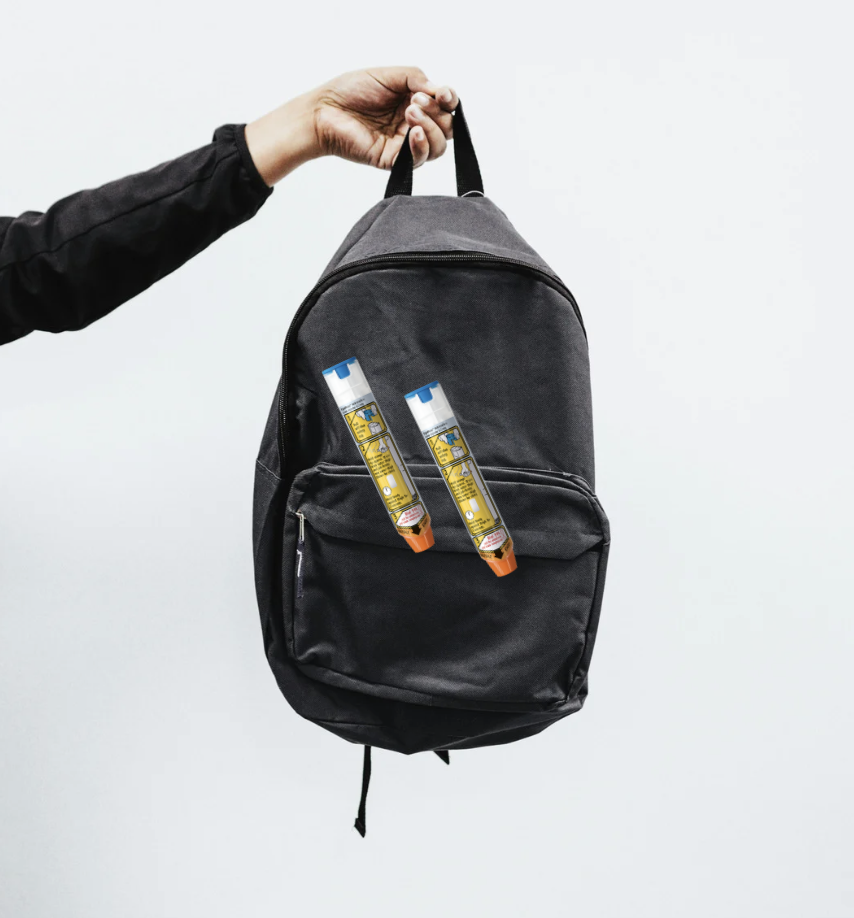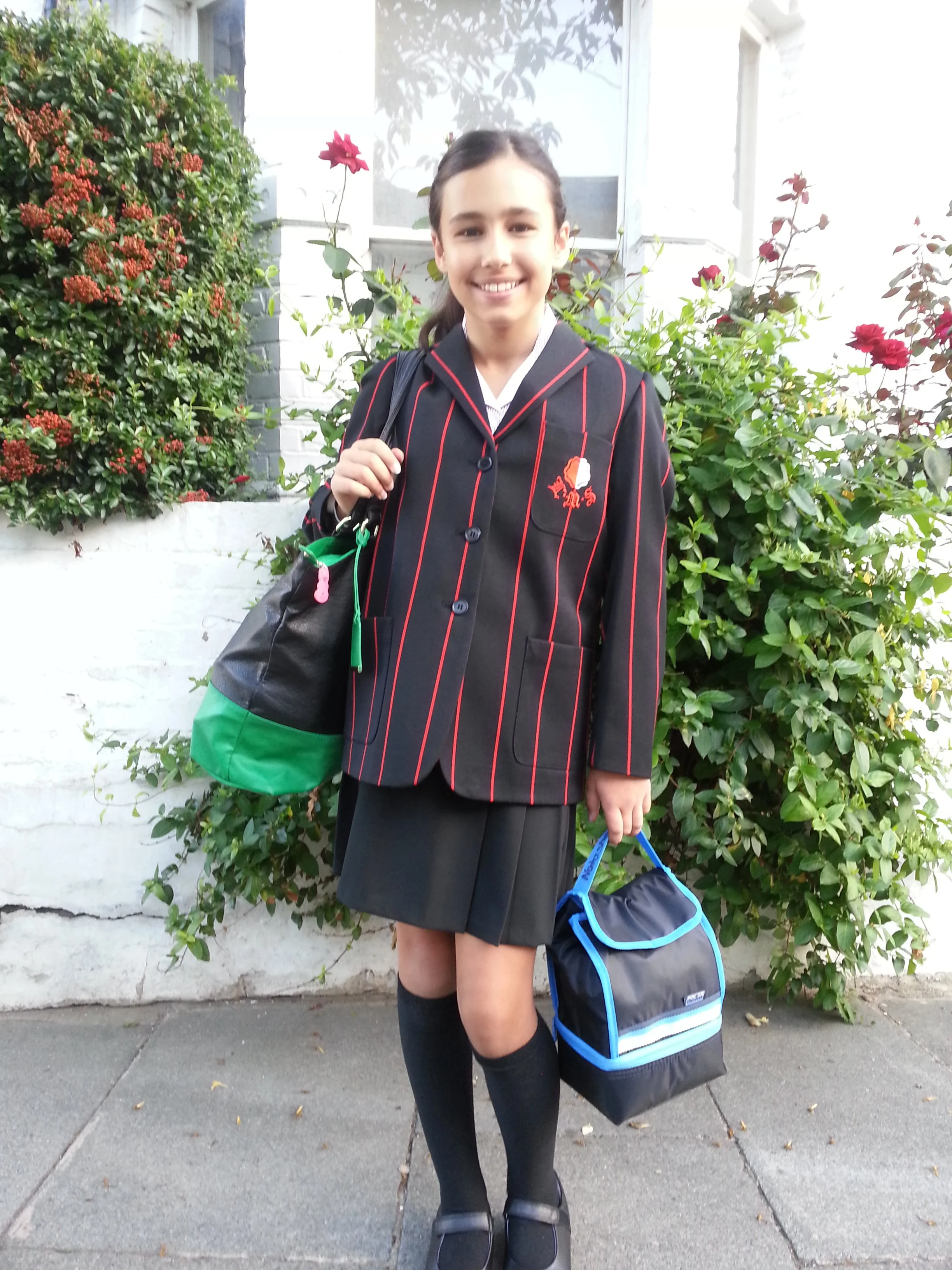New School, New Food Allergy Safety Risks : Carrying Allergy Medication Responsibility
Allergy kids have to carry more than school books
Starting secondary or senior school (around ages 11–12) is a huge transition for most children. New classmates, multiple teachers, larger school grounds, complex timetables, and busy lunchtimes all add up to a time of major change.
For children living with food allergies, however, this milestone can feel especially daunting. Alongside the usual challenges, they must also think about their own food allergy safety, accidental exposure to allergens, and what to do if an allergic reaction occurs.
So, when is it the right time for children to begin carrying their allergy medication - including adrenaline auto-injectors (AAIs) such as EpiPens - themselves at school?
Secondary school comes with extra responsibility with food allergies
The Secondary School Shift: More Independence, More Responsibility
In UK primary schools (around ages 4-11), it’s often easier for parents and carers to speak directly to teachers about their child’s food allergies. Teaching staff usually know each pupil well, manage one classroom, and work within smaller school grounds. Allergy medication, such as EpiPens, is typically stored in a central, accessible place like the school office and overseen by designated staff. This system helps younger children feel supported, while giving parents reassurance that their child’s allergy management is closely monitored.
Secondary school is different. Students are expected to become more independent. They move between classrooms, interact with many more teachers, and may have less direct supervision. For children with food allergies, this brings an extra layer of responsibility: making sure life-saving medication is close by at all times.
Natasha Ednan-Laperouse Secondary School
Natasha’s Story: Why Carrying Medication Matters
“When Natasha started secondary school, we met with the school nurse who was on our school site one day a week. We went through Natasha’s individual healthcare plan together. We then handed over her allergy medications including EpiPens which were stored in the nurse’s office near the reception.
“I was assured that Natasha’s teachers would be informed of her food allergies and asthma and that there were enough staff in the school who were trained in how to use adrenaline auto-injectors (AAI) should they be required. But I felt ill at ease. It was all so different to primary school where it was easier to have conversations with teaching staff.
“I had a chat with Natasha and we both decided that she would feel much safer and confident if she carried her medications with her in her school bag. We made this decision together, it was right for us.”
-Tanya Ednan-Laperouse OBE, Natasha’s Mother
What Does UK Guidance Say to Support Pupils with Medical Conditions?
Some schools in the UK have policies that may restrict pupils from carrying allergy medications like EpiPens due to a combination of safety, safeguarding, and liability concerns, even though these policies can be problematic and potentially dangerous.
If you’re in the UK, the Department for Education encourages schools to support pupils with medical conditions and to allow them to carry their medication, including AAIs, if appropriate. But it is not mandatory for secondary schools to automatically allow children to carry their AAIs in their school bags - however permitting them to do so it is strongly encouraged, particularly for older students.
Always check the school policy on this. For allergy parents and carers it is important to find out if children with known severe allergies are allowed or even required to carry their AAIs with them at all times. While some schools might ban pupils from carrying AAIs for what they believe are safety reasons, you can ask the school to review their policy; refer them to the DfE guidance; involve the school nurse, GP, or an allergy specialist to support your child’s right to carry emergency medication.
What Parents and Carers Can Do for Their Allergic Children
Ask about your school's allergy policy
If your child is about to start secondary school and has severe allergies, here are some key steps to take:
✅ Ask about the school’s allergy and medication policy - Are pupils allowed or required to carry their own AAIs? Where are spare devices stored?
✅ Review the Individual Healthcare Plan - Make sure it includes details about carrying medication and access during emergencies.
✅ Talk to your child about responsibility - Carrying their own medication can be empowering but also feels like a big responsibility. Discuss what works best for them.
✅ Ensure staff training is up to date - Ask how often staff receive training on food allergy management and use of adrenaline auto-injectors.
Why This Matters
When seconds count, quick access to an AAI can be life-saving. For older children, carrying their own medication often makes the most sense, but it requires support from both schools and families.
Every child is different, and the “right time” to start carrying their own allergy medication will depend on their maturity, confidence, and the policies in place at their school.
Have Your Say!
💬 We’d love to hear from parents, carers, and young people: When did your child start carrying their own allergy medication? What worked for you and your allergies and what challenges did you face?
Together, we can raise awareness and make schools safer for all children living with food allergies.




